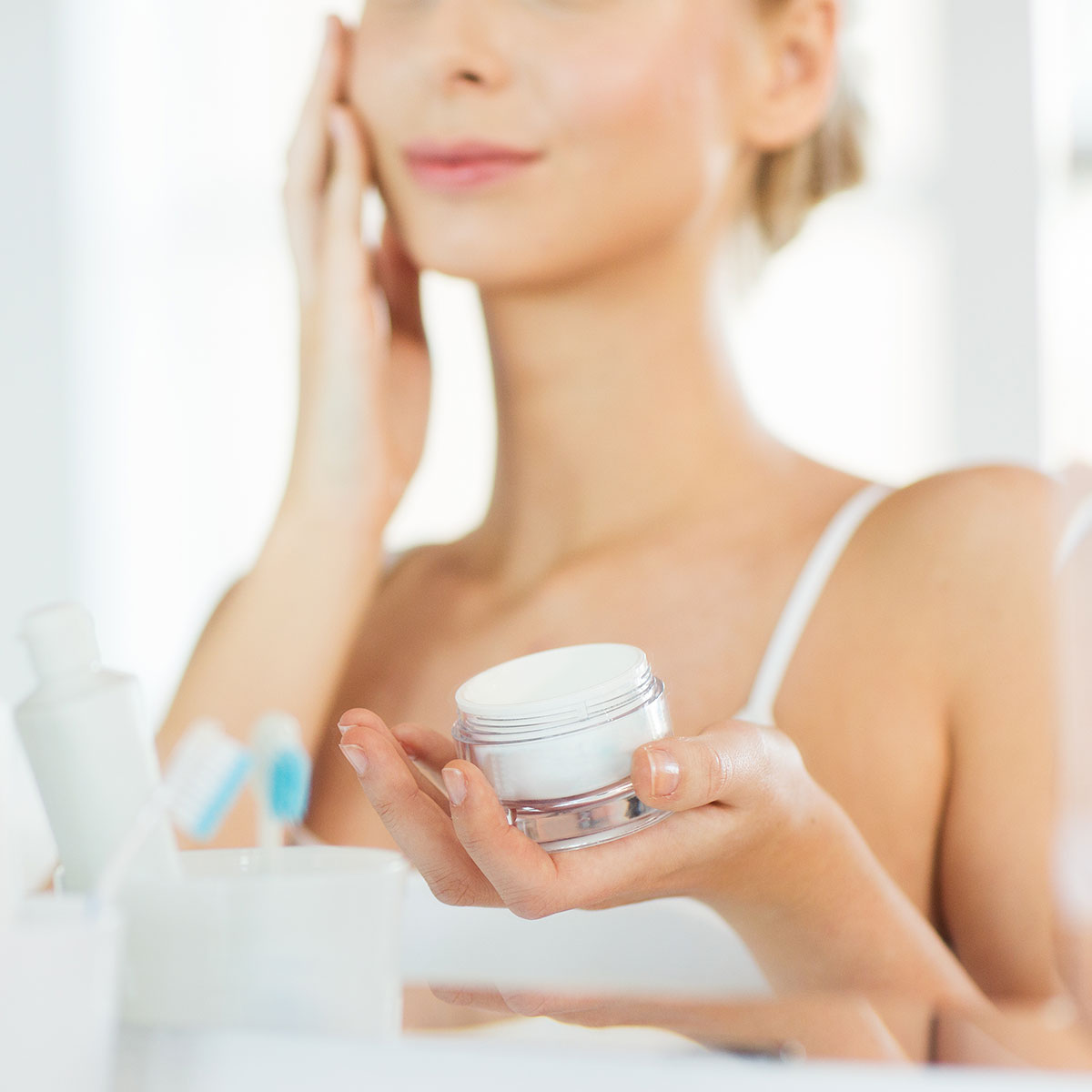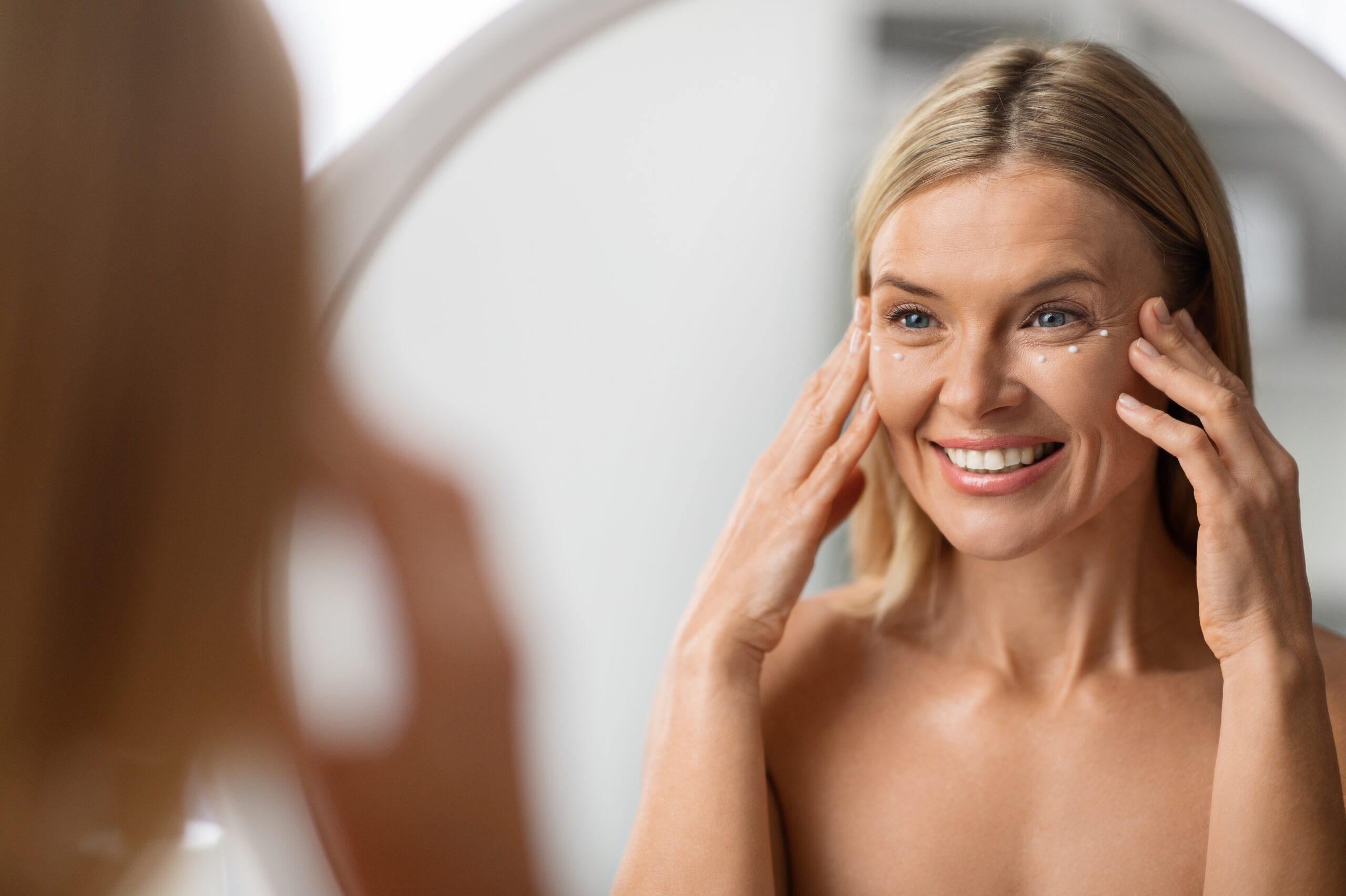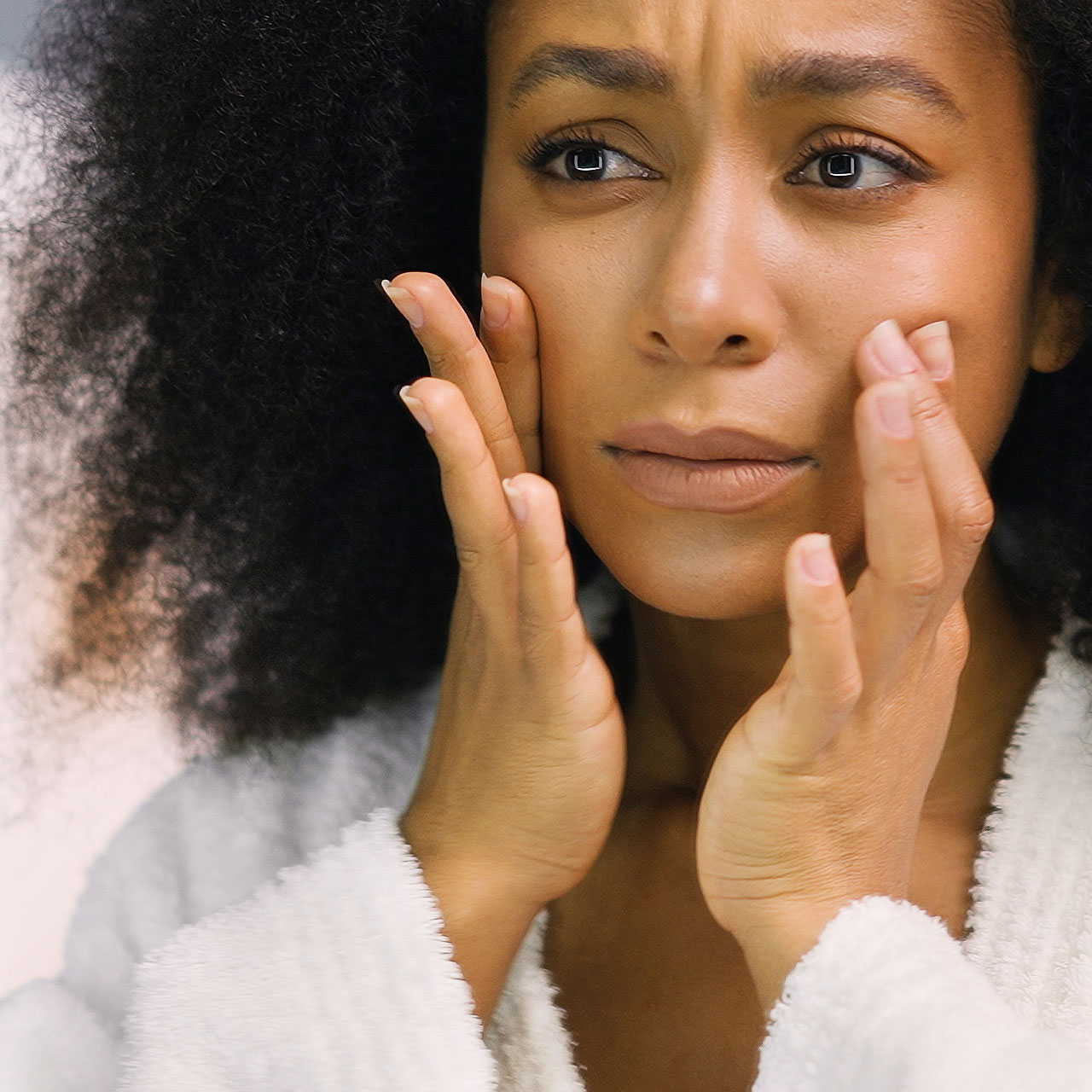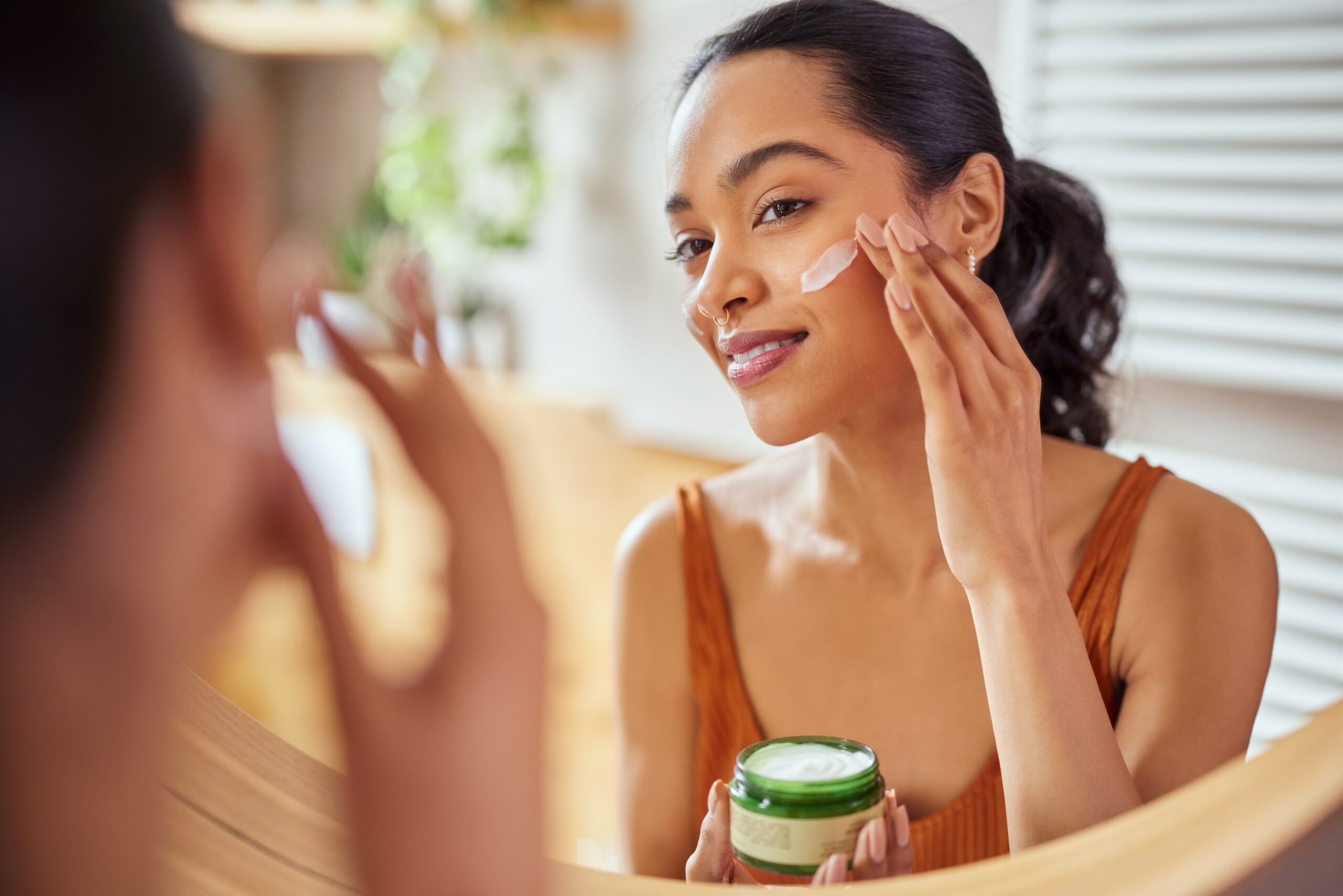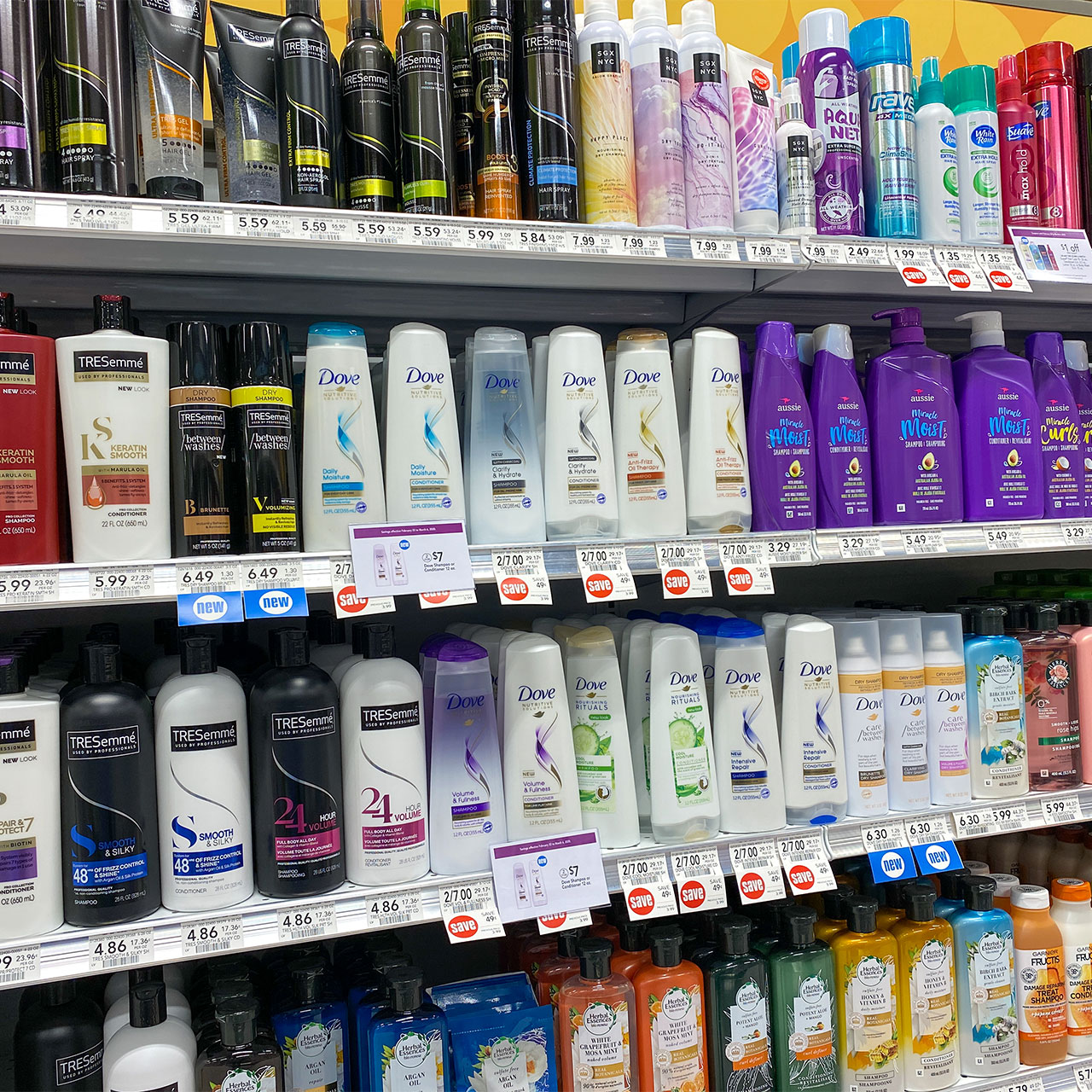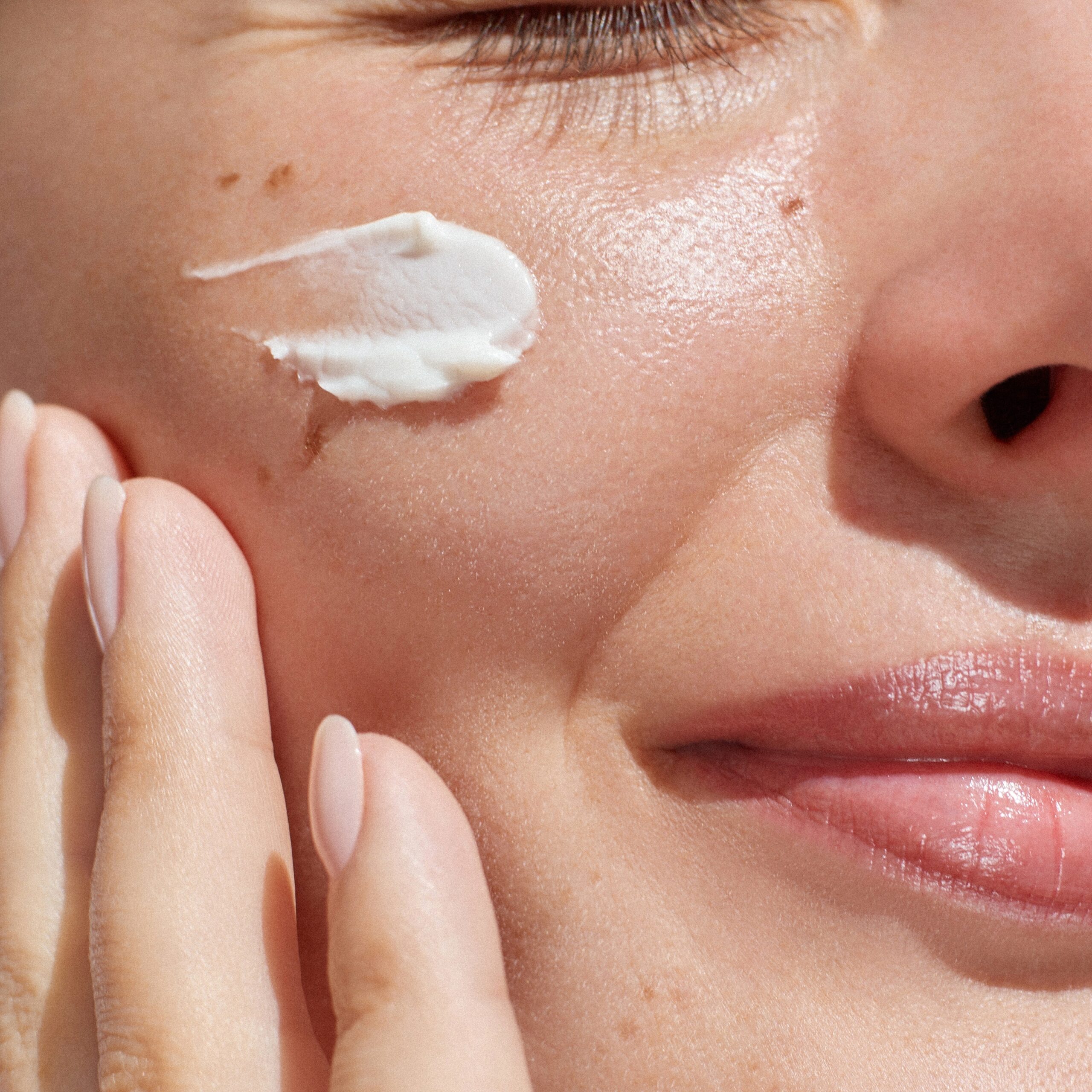Before you apply yet another anti-aging cream, serum, or other product, stop right there — you could be using it all wrong. Many people are unknowingly applying some of the most effective ingredients to their skin all wrong. As a result, they are wasting both precious time and money on products that could be effective — if used correctly. From sunscreen tips to retinol mistakes, these are the anti-aging products skincare experts say you’re using all wrong.
Sunscreen
For starters, you are probably not applying sunscreen daily, which means you’re missing out on opportunities to protect your skin from the damaging, aging effects of UV light, whether it’s July or December.
“Preventative care is the most important step in anti-aging,” says Dr. Adrienne O’Connell, medical director and president of Laguna Beach Aesthetics. “You must wear sunscreen that protects against both UVA and UVB rays (broad spectrum) with an SPF 30 or higher every single day, no matter the weather. I highly recommend a 100% mineral sunscreen, which is much safer for sensitive skin and contains no added chemicals.”
Retinol
The second most misused product is Retinol, according to Dr. O’Connell. “As the ultimate go-to skincare ingredient for a younger look, retinol speeds up your cell turnover so your body can replace damaged surface cells with brighter, younger skin cells,” Dr. O’Connell says. “More is not better when it comes to this product. It can over-dry or irritate your skin. It is also dangerous to use in the morning because it makes your skin more sensitive to sunlight.”
If you choose to use a Retinol product, Dr. O’Connell says it is best used at night and washed off in the morning. “You also must apply sunscreen in the morning as an added precaution,” Dr. O’Connell says. “Also, start slow. Use the product once a week and gradually increase until you are using it according to the product’s instructions and never use more than the instructions direct you to.”
Trusting retailers
Often, people buy the products they see on TV or are advertised by a favorite celebrity without caution, warns Dr. Nadir Qazi, DO, a board-certified physician, cosmetic dermatology surgeon, and owner of Qazi Clinic. Then when you look at the ingredient list it can contain ingredients known to cause harm to skin instead. For example, a product may contain retinol to combat wrinkles,” Dr. Qazi says. “However, if that same product contains a coconut oil derivative like Coco-Caprylate, the product might slow wrinkling but clog the pores and cause acne. Or they may only put a small amount of active ingredients in the product. Suppose an under-eye cream advertises vitamin C as its main active ingredient. Then, using a name like sodium ascorbate, they put it at the bottom of the ingredients list. All the while, that product uses silica as a main ingredient and filler to smooth the appearance of under-eye circles while using the product without treating them.”
That’s why Dr. Qazi says it’s imperative to look at ingredients and do your own research on whether a product can be harmful or beneficial.
Over-exfoliation
“Exfoliation is wonderful — it makes the skin fresh and rejuvenated,” Dr. Qazi says. “It feels so nice and vibrant that people are often tempted to exfoliate more often than they should, and with products that do more harm than good.”
Over-exfoliation makes the skin sensitive and inflamed, and the skin can begin to flake and peel away, Dr. Qazi says. In addition, as skin becomes dehydrated from over-exfoliating, collagen breaks down, which causes the skin to lose its firmness and elasticity, creating wrinkles.
“To maintain a youthful glow, chemical exfoliants are a good substitute for the abrasive scrubs one might have used growing up,” Dr. Qazi says. “Look for alpha-hydroxy acids like glycolic and mandelic acids. These acids exfoliate efficiently, and it is easy to find lower concentrations or limit how often you use them to avoid over-exfoliation. Mandelic acid can be especially beneficial for sensitive skin as it has a larger molecular structure and is very gentle as an exfoliant.”
It isn’t enough to own a bathroom medicine cabinet’s worth of expensive anti-aging skincare products. Learning which ones you could be using wrong is key to getting healthier, more glowy skin at any age.





